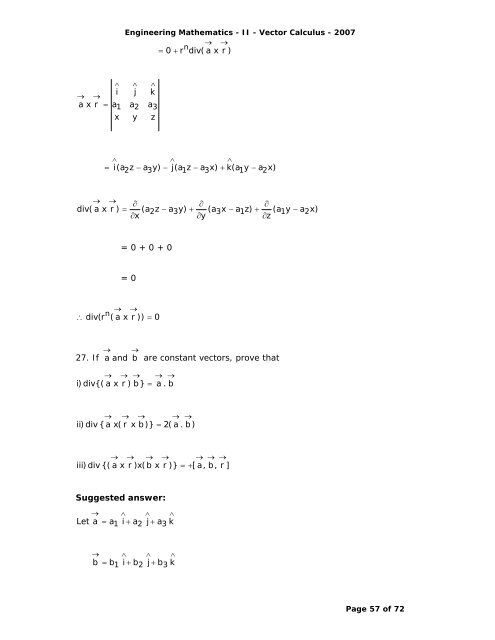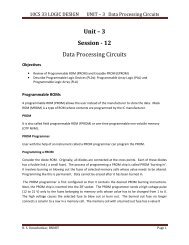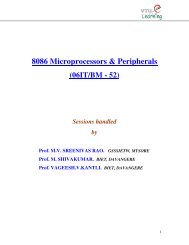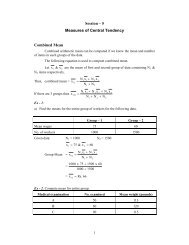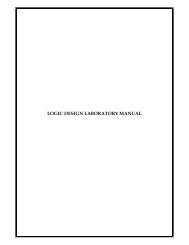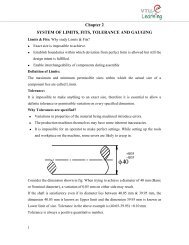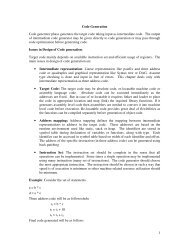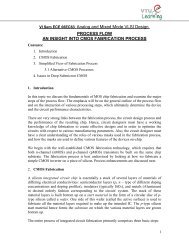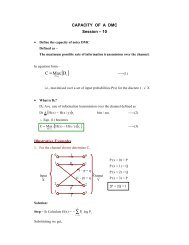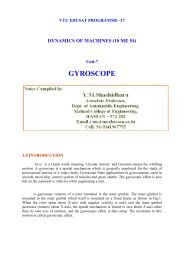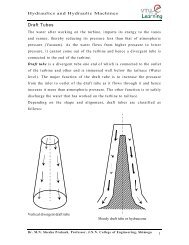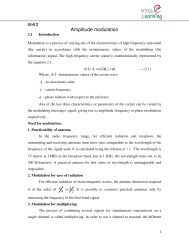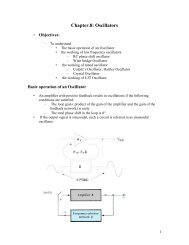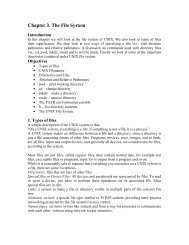Syllabus Vector Differentiation - Velocity and Acceleration - Gradient ...
Syllabus Vector Differentiation - Velocity and Acceleration - Gradient ...
Syllabus Vector Differentiation - Velocity and Acceleration - Gradient ...
You also want an ePaper? Increase the reach of your titles
YUMPU automatically turns print PDFs into web optimized ePapers that Google loves.
Engineering Mathematics - II - <strong>Vector</strong> Calculus - 2007<br />
<br />
0 r<br />
n<br />
div( a x r )<br />
<br />
<br />
i j k<br />
a x r a1<br />
a2<br />
a3<br />
x y z<br />
<br />
i(a2z a3y) j(a1z a3x) k(a1y a2x)<br />
<br />
<br />
<br />
div( a x r ) (a2z<br />
a3y)<br />
(a3x<br />
a1z)<br />
(a1y<br />
a2x)<br />
x<br />
y<br />
z<br />
= 0 + 0 + 0<br />
= 0<br />
div(r<br />
n <br />
( a x r )) 0<br />
27. If<br />
<br />
a <strong>and</strong><br />
<br />
b<br />
are constant vectors, prove that<br />
<br />
i) div{( a x r ) b} a . b<br />
<br />
ii) div { a x( r x b )} 2( a . b )<br />
<br />
iii) div {( a x r )x(b x r )} [a,<br />
b , r ]<br />
Suggested answer:<br />
<br />
Let a a1<br />
i a2<br />
j<br />
a3<br />
k<br />
<br />
b b1<br />
i b2<br />
j<br />
b3<br />
k<br />
Page 57 of 72


